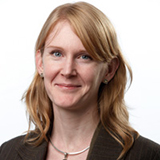 Anyone who has taught medical students in recent years will be familiar with the sight of students appearing more interested in the screens of their laptops, tablets, or mobile phones. While they may, of course, be using their devices to take notes, there is always the suspicion that they are in fact sending text messages or improving their Candy Crush score.
Anyone who has taught medical students in recent years will be familiar with the sight of students appearing more interested in the screens of their laptops, tablets, or mobile phones. While they may, of course, be using their devices to take notes, there is always the suspicion that they are in fact sending text messages or improving their Candy Crush score.
But the educational opportunities that digital technologies also provide are developing fast. This year’s Institute of Medical Ethics conference “Ethics in a digital age” identified that teachers are often left catching up with medical students who have grown up as digital natives.
Although the conference was primarily for ethics teachers, its aims were relevant to all those involved in medical education: how to understand the range, possibilities, and pitfalls of digital media, and how to feel more confident and equipped to facilitate student learning through the appropriate and effective use of digital technologies.
Hannah Barham-Brown and Iona Campbell, medical students at St George’s and Dundee University, respectively, described how they and their peers use digital technologies in their everyday life and medical education. Teaching in social media, they said, is not like giving an hour long lecture. One tutor had given students the option of joining in a Twitter discussion (#fluscenario) or writing a 750 word essay. Unsurprisingly, the Twitter option was by far the favourite.
An interesting case or x-ray posted on Twitter is “a good way of getting people talking” and creates a learning tool when tweets about it are collated using a hashtag. Doctors on Twitter, such as @traumagasdoc, share cases and tips with their followers. Facebook groups are useful not only socially, but also for sharing information and educational resources, and working collaboratively on projects. There is a Whatsapp eponymous disease group, a blog for sharing revision notes the size of a post-it note, and a Twitter finals revision group. Barham-Brown suggested it might even be possible to pass finals using only Twitter to revise.
Experiences can be shared and discussed online, from which other students may learn—even if they were not present. And, as well as learning, the students have found support and guidance from others through the use of social media. One student tweeting about the conference said that her best pastoral support had come from using Twitter. Campbell had also experienced the potential pitfalls of social media firsthand. She described how the posting of inappropriate comments on Facebook by colleagues about an anatomy dissection session had been a lesson in confidentiality and professionalism for all concerned.
The risks, as well as the opportunities, of digital technology were explored by Anne-Marie Cunningham, a GP and clinical lecturer at Cardiff University, who is interested in the use of new technologies to further medical education. “There is a divide between formal and informal learning and students navigate the dissonance between these with or without support. So there must be a responsibility on us to help them navigate this,” she said.
To this end, Cardiff University School of Medicine runs the course “Developing your digital presence” early on in the medical curriculum for all students, who start medical school with varying degrees of digital literacy. Students are taught what not to do online (break confidence or abuse colleagues), what to do more of (learn and share), and how to manage digital distractions.
There is the risk of forcing students to use social media in a course, and then confusing compliance with engagement—or worse, learning—Cunningham warned. The space needs to be safe for staff and for learners, and there is also a need to be aware of the limitations of social media. But overall her enthusiasm for its use in medical education was apparent and her take home message was clear: teachers should develop online networks and allow students into those networks.
Marika Davies is a freelance journalist and medicolegal adviser at the Medical Protection Society.
Competing interests: “I have read and understood BMJ policy on declaration of interests and declare the following interests: I am employed as a medicolegal adviser by the Medical Protection Society.”